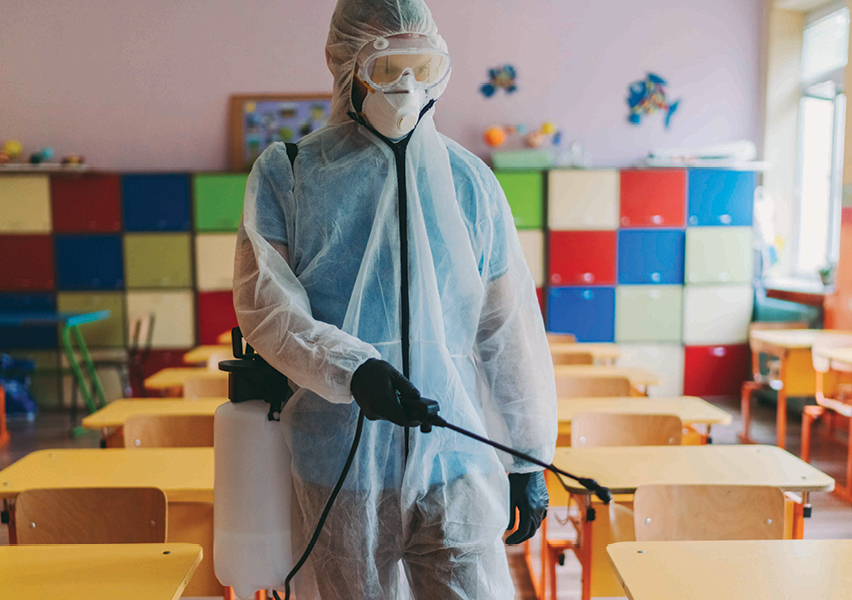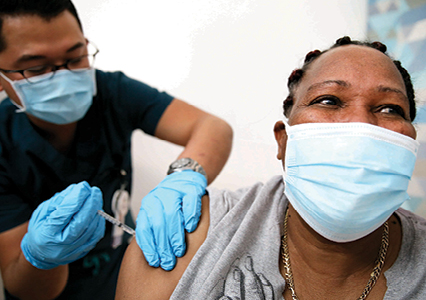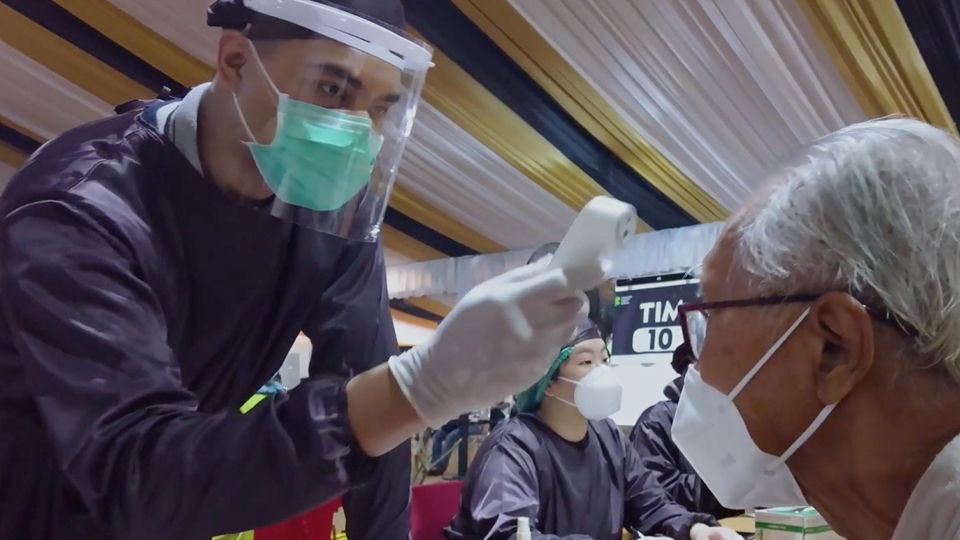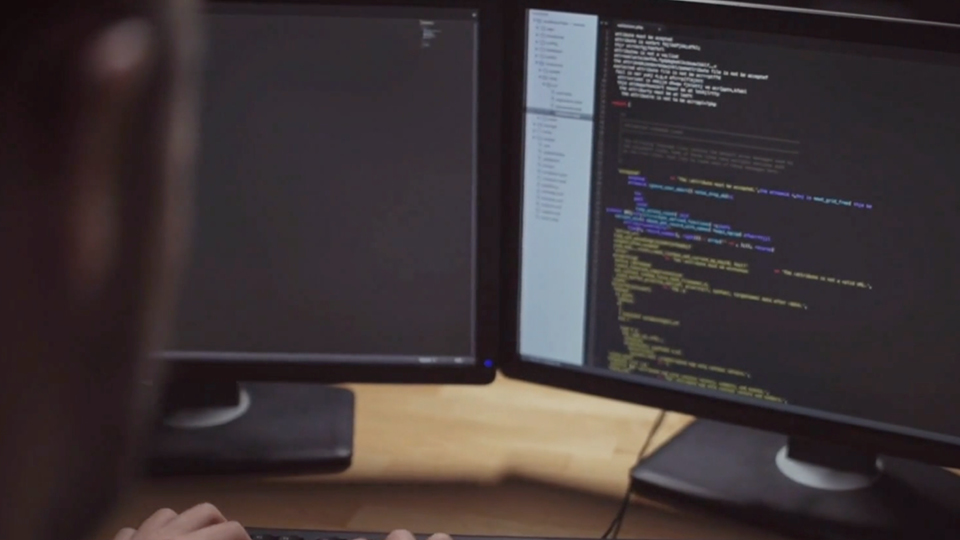Tabletop Exercise
We need
bold
action
to
prevent
the
next
biological
catastrophe.
NTI and the Munich Security Conference convened 22 senior leaders from the public health, biotechnology, international security, and philanthropy sectors for a February 2022 tabletop exercise using a fictional scenario to identify gaps and solutions to prevent high-consequence biological events.
read the scenario summary
The scenario for the exercise begins with an outbreak of Akhmeta virus (AKMV) in the cattle of the fictional country Andoriban. Although the outbreak begins in the nation’s livestock, spillover into the human population causes a local epidemic which escalates into a global pandemic. Complications with the response, questions about the accuracy of data, and inadequate biothreat intelligence conceal that the pandemic originated because of a state-sponsored agricultural attack by Andoriban’s adversary, Manria. Manria’s ongoing cyber-interference to avoid attribution and accountability hampers the pandemic response, resulting in 2.2 billion cases of AKMV and 120 million deaths over 20 months.
Why do we do tabletop exercises?
A tabletop exercise is a scenario-based, facilitated discussion used to stimulate dialogue among practitioners and experts and to reveal critical gaps. Such exercises often produce valuable insights and generate ideas about effective approaches to solving difficult problems. They are widely used to prepare for worst-case scenarios.
Outbreak
When local Andoriban health authorities detect an outbreak of Akhmeta virus, a third of the country’s cattle are culled to control the virus. But it spills over to humans, causing more than two dozen fatalities. Despite the best efforts of scientists, the government, and the international community, the response is uncoordinated, and it’s difficult to determine the virus’s origins and key features.
Spread
The World Health Organization declares the Akhmeta outbreak a public health emergency of international concern, with cases reported in Brazil, Germany, India, South Africa, the United Kingdom, and the United States. Waning efficacy of antiviral treatments and slow vaccine development complicate the international response. The world also faces challenges from disrupted supply chains, PPE and healthcare staffing shortages, strained infrastructure, and looming food scarcity.
Cybersecurity
An Andoriban investigation team unearths prior cyber-intrusions by a hacker group associated with Manria, Andoriban’s longtime adversary. Manria’s Ministry of Defense had repeatedly infiltrated and manipulated key biosurveillance databases to cover up its involvement in the attack, undermining trust in the response, hampering vaccine development, and ultimately contributing to the spread of the pandemic.
Intelligence Failures
A UN High-Level Study Group tasked with developing recommendations to prevent future human-caused pandemics releases a report blaming intelligence failures for allowing a nascent bioweapons program in Manria to go undetected. The study group found that international biosecurity and biothreat intelligence capabilities suffer from underinvestment and a lack of support. “We’ve been flying blind, and populations around the world are now paying the price,” said study group chair Charles Stevens.












We are not prepared for the next pandemic
Tabletop exercise participants agreed that, despite some improvements following the global response to COVID-19, the international system of pandemic prevention, detection, and response is woefully inadequate to address current and anticipated future biological threats.
FINDINGS
Where are we falling short?
Finding 1
The current system for assessing biological events of unknown origin is inadequate.

Despite modest improvements since the COVID-19 pandemic, the systems and tools in place today to assess biological events of unknown origin are challenged by politics, underinvestment, and a lack of trust.
Finding 2
Failure to coordinate national and global responses leads to devastating human and economic losses, especially among vulnerable populations.

- Preparing for and responding to future pandemics requires innovative approaches that match capabilities with needs, and we need to build relationships before a crisis happens.
- Equity must underpin future response efforts.
- The international community needs to prioritize intellectual property waivers, quality control of goods and services, and community-level capacity building efforts in low- and middle-income countries.
Finding 3
Cybersecurity risks within bioscience research infrastructure and outbreak response systems are increasing.

- These include the potential for theft of intellectual property, tampering with data and samples, ransomware, disinformation, and disruption of vaccine manufacturing.
- Improved resilience will require building in cybersecurity from the bottom-up.
Finding 4
Biothreat intelligence collection and analysis capabilities are dangerously neglected.

- There is a growing need for biothreat intelligence as the barriers to developing biological weapons fall and the range of potential malicious actors expands.
- New ways to analyze data from social media, trade, published research, and genetic sequences can help us detect potential biothreats before an event occurs.
Recommendations
What can we do about it?
Recommendation 1
The UN Secretary-General should establish a new Joint Assessment Mechanism to discern the source of outbreaks of unknown origin.

- The mandate of the Joint Assessment Mechanism should be to gather the facts about the source of a biological event when there is uncertainty about its origin.
- It should have a standing capability to collect and analyze baseline data. When triggered, it can launch an assessment quickly.
- There should be clear, transparent, and evidence-based criteria for determining when and how to use the mechanism and off-ramps to transfer authority to the World Health Organization or UN Secretary-General’s Mechanism, depending on whether an outbreak is found to be naturally occurring or human-caused.
Recommendation 2
The UN should create a Response Coordination Unit to prepare for and coordinate complex responses to high-consequence biological events.

The Response Coordination Unit should:
- Be a permanent fixture within the UN system to ensure an equitable, integrated response capacity to address the public health, economic, and other cascading effects of a high-consequence biological event.
- Convene key stakeholders across sectors to analyze past response efforts to better understand supply chain issues and develop risk-based models to predict future bottlenecks.
- Put systems in place to allocate scarce resources, including serving a matchmaking function to match capacities with needs.
Recommendation 3
Governments, industry, and the scientific community should identify the highest priority cyber-biosecurity vulnerabilities and develop practical solutions.

- Experts in cybersecurity, biotechnology, and public health should conduct a comprehensive analysis to identify the most pressing cybersecurity risks and recommend technical and policy solutions.
- Areas to explore include bio-manufacturing systems, biosurveillance and genetic sequence databases, high-containment lab infrastructure, and automated systems in bioscience research labs.
- Analysis should address the complicating effects of misinformation and disinformation and avoid introducing information hazards.
- Technical and policy solutions for cyber-biosecurity should incorporate expertise from the energy, telecommunications, and financial sectors.
Recommendation 4
National governments should invest in stronger biothreat intelligence capabilities.

- Countries with available resources should prioritize investing in biothreat intelligence, including on-the-ground and open-source intelligence.
- Government and civil society should develop a clearer understanding of the role of biothreat intelligence in preventing deliberate biological events.
- Governments should develop more effective ways to share actionable intelligence within the UN system.
- Civil society should develop open-source intelligence tools and methods for biothreat assessment.
We Must Take Steps Now To
Prevent the next biological catastrophe.
THE NUCLEAR THREAT INITIATIVE is a nonprofit, nonpartisan global security organization focused on reducing nuclear and biological threats imperiling humanity. Recommendations in this report do not necessarily reflect the views of exercise participants
© 2023 Nuclear Threat Initiative. This work is licensed under a Creative Commons Attribution-NonCommercial-NoDerivatives 4.0 International License. The views expressed in this publication do not necessarily reflect those of the NTI Board of Directors or the institutions with which they are associated.
MSC DISCLAIMER This NTI tabletop exercise was conducted virtually as part of the 2022 Munich Security Conference (MSC). Any views expressed in this publication do not necessarily reflect those of the MSC. The MSC assumes no liability for the discussion or the outcome of the exercise.



